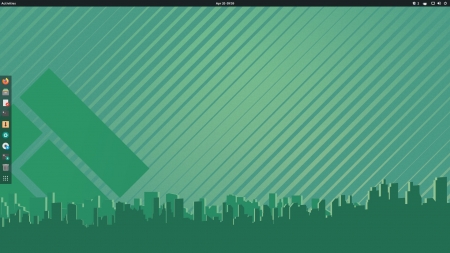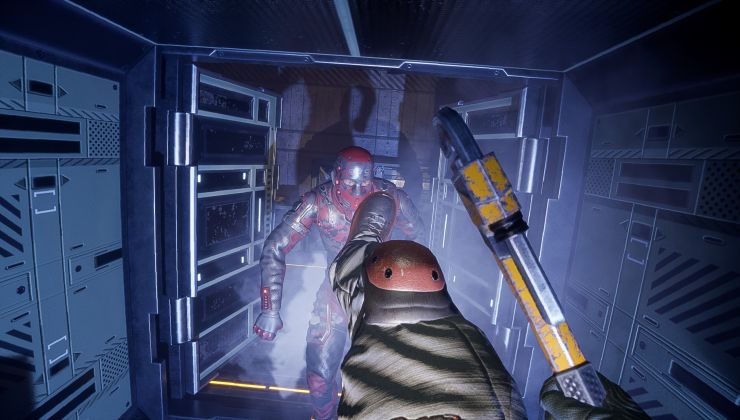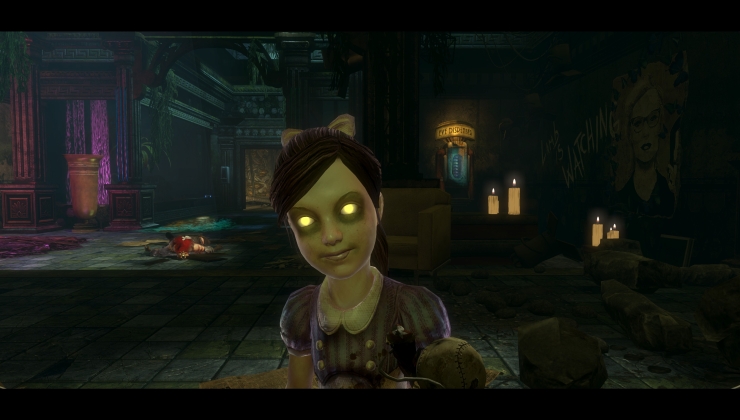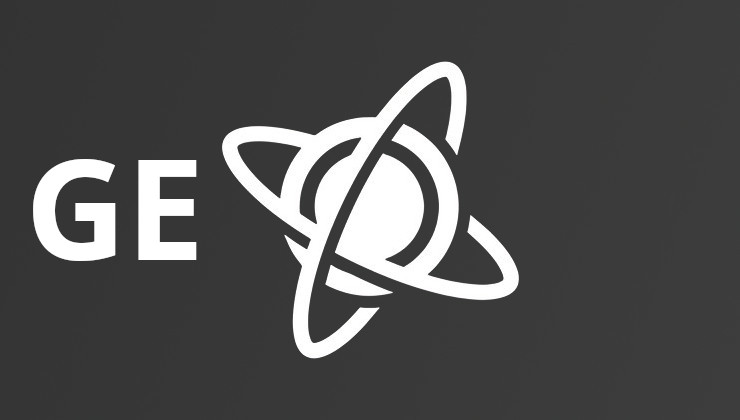Manjaro Linux is getting ready for their major release, and they're looking for your help to make sure the GNOME edition for Manjaro GNOME 20.0 is as smooth as possible.
Announced here, there's a huge amount of new features coming. The thing is though, unlike other distributions like Ubuntu, Manjaro is a rolling-release where they regularly put out full upgrades for anyone who has it installed. These big new releases like Manjaro GNOME 20.0 are mainly a refresh of the download and installer for new installs. Important to do of course, just like any other Linux distributions, they need a good out of the box experience.
So what's new in Manjaro GNOME 20.0? Some of the highlights include:
- gnome 3.36 with its many improvements
- clean app drawer with applications sorted to folders by default
- new gdm theme
- pamac integration for gnome shell
- support for snaps and flatpaks in pamac
- improved gnome-layout-switcher
- evolution replaced with geary and gnome-calendar
- added deja-dup for backups integrated into gnome desktop
- removed hexchat, bijiben, empathy, java stuff and bauh
- added manjaro-zsh-config
- added modules needed for zfs installation in manjaro-architect
- based on stable branch
Have a quick look with some shots I took earlier. GNOME really does look sleek (click to open gallery):
If you want to get involved, you can see the post here which has the most up to date link for the Release Candidate download.
I love Manjaro but not enough to use Gnome ;)
I 2nd that... I've been rockin' Manjaro-KDE for several years now. No need to switch over to that yucky Gnome...
Just XFCE :D
On a serious note though would anyone teach me what is the advantage of snap and flatpack ? I always thought packaging libraries versions would open the way for flaws and exploits, is it neatly contained from the system ?
Woohoo!
I'm loving the slow but steady adoption of Flatpak.
I've been keeping track of how the distros are going in adopting it:
So far, distros with OOTB support:
Fedora: Flatpak OOTB, Flathub installed separately.
Endless OS: OOTB
Linux Mint: OOTB
CentOS: Flatpak OOTB, Flathub installed separately.
ElementaryOS: OOTB
PureOS: OOTB
And now we can add Manjaro to the list too.
And pretty much every major distro has Flatpak available as something that can be pretty easily installed separately. Give it time and eventually Flatpak will be everywhere.
I fled gnome shell from Debian but it's coming after me, help!
On a serious note though would anyone teach me what is the advantage of snap and flatpack ? I always thought packaging libraries versions would open the way for flaws and exploits, is it neatly contained from the system ?
The advantages are, it's one universal system which can be used across all Linux distributions for distributing applications from developers to users. Applications come in a package, specifying what Flatpak runtime they need to be executed with, and if the runtime isn't already installed then it's automatically installed. It also puts developers in control of pushing out their own updates when they want, and allows users to get updates immediately instead of waiting for their distro maintainer to get around to updating the software package on their distro's repository.
The runtimes ensure newer applications work fine on older distributions, and older applications work fine on newer distributions, and any inconsistency between distributions are eliminated. For users, it means they can get their applications from one hub (Flathub) on all Linux OSes the same way and have a consistent user experience across the entire Linux landscape.
I love the color scheme of Manjaro, but I'm really fine with ubuntu (and pretty excited with 20.04, it will be a good day)
Used Ubuntu for years, then I tried Manjaro, but I very quickly gave up, switch back to Ubuntu, at some point I got fed up with Ubuntu and switch back to Manjaro and actually gave it a fear chance. I love it, I actually love it. I used the Budgie version for some time but now I am on Gnome.
Ubuntu is nice, but the software they provide is usually very old, and you have to add PPAs and for a new user I don't think that is very easy. Manjaro, the way I see it, is like Ubuntu but with new-er software, yes it's not that tested, but I didn't have a problem with it until now. And once you get how the AUR works... my god this is like a new experience to Linux in itself.
Maybe when this release comes out, I will actually do a complete reinstall, since I put it on my laptop and PC like 3-4 years ago I never reinstaled the OS but I kind of want have that "fresh feeling" :D
I love Manjaro but not enough to use Gnome ;)
I 2nd that... I've been rockin' Manjaro-KDE for several years now. No need to switch over to that yucky Gnome...
I too am mostly on Manjaro KDE and loving it. I'm testing Gnome 3.36 on the unstable branch, though, and as someone who generally doesn't like Gnome I must admit this version is much improved within, of course, Gnome context...
Flatpak out of the box?
Woohoo!
I'm loving the slow but steady adoption of Flatpak....
Great explanation, thanks. As someone who hated Snaps (and those plus unstable PPA's pushed me out of the Ubuntu ecosystem) I have a few questions for you:
1) How are Flatpaks with speed? Snaps were soooo slooooow to launch.
2) Is native theming reflected in Flatpaks?
3) If Flatpaks conquer all, what kinda is the point of different distros anymore? They really do become only theming and software selection boutiques. In the best case scenario, as with Manjaro, they develop their own unique apps and workflows.
Thanks!
Last edited by iiari on 21 Apr 2020 at 9:57 am UTC
I love Manjaro but not enough to use Gnome ;)
Gnome
Manjaro is becoming better and better with every release, I have no regrets switching to it two years ago.
Flatpak out of the box?
Woohoo!
I'm loving the slow but steady adoption of Flatpak....
Great explanation, thanks. As someone who hated Snaps (and those plus unstable PPA's pushed me out of the Ubuntu ecosystem) I have a few questions for you:
1) How are Flatpaks with speed? Snaps were soooo slooooow to launch.
2) Is native theming reflected in Flatpaks?
3) If Flatpaks conquer all, what kinda is the point of different distros anymore? They really do become only theming and software selection boutiques. In the best case scenario, as with Manjaro, they develop their own unique apps and workflows.
Thanks!
If you're on Manjaro (or apparently a debian-based distro, although I haven't tried it there), you can install 'bauh' which is a frontend package manager that will let you install flatpaks (and snaps and appimages). I've installed a few and see no discernible difference in speed (and I don't think one should). Most recently I installed the 'cura' flatpak (3d printing slicer program), as I could not get any of its version in the AUR to successfully work and have data loaded for my printer. Its working great installed as a flatpak, so that has really boosted my appreciation of them.
Last edited by inlinuxdude on 21 Apr 2020 at 11:20 am UTC
Flatpak out of the box?
Woohoo!
I'm loving the slow but steady adoption of Flatpak....
Great explanation, thanks. As someone who hated Snaps (and those plus unstable PPA's pushed me out of the Ubuntu ecosystem) I have a few questions for you:
1) How are Flatpaks with speed? Snaps were soooo slooooow to launch.
2) Is native theming reflected in Flatpaks?
3) If Flatpaks conquer all, what kinda is the point of different distros anymore? They really do become only theming and software selection boutiques. In the best case scenario, as with Manjaro, they develop their own unique apps and workflows.
Thanks!
1) In my experience I notice no difference in startup time or running speed. In 2018 there were reports of some overhead during the first run of a Flatpak application but that was due to a bug with the fontcache and it's been fixed ever since.
At it's core, it's the same tech as Steam's runtime compatibility mode. There's no VM, no overhead, just lightweight containers as a way of logically sandboxing an application away from the OS so it can have it's own libraries.
You could argue there's additional startup time and memory usage from loading a couple of system libraries more than once, but in many cases the libraries being loaded more than once are libraries that the developers might have had to include with the 'native' version of the application anyway if they needed to target a specific version of the library, so any startup overhead or additional memory is debatable and really minor.
In the underlying tech there's a lot of cool stuff too that makes it very efficient. For example, in addition to sharing installations of runtimes, if two Flatpak applications bundle with them the same library, the library files will be stored only once for both applications, no additional storage space usage.
2) My understanding is that Flatpak applications can be made to respect system theme. I imagine many distros will choose to set this up by default themselves with their OOTB Flatpak coofigurations, but I understand you can install a system theme to Flatpak the same way you can to your distro, and applications will respect that.
3) I think it's great for distro maintainers as it frees up huge sums of their time and allows them to focus on the user experience of their distros rather than trying to maintain vast repositories of applications written by other people.
They can compete on delivering the best user interface they can provide, compete on delivering regular high quality updates and new features to their distros. Compete on performance of their OS, etc. Compete on ease of installation.
So there's still plenty of reason for them to exist and to compete. If it means a couple of unpopular distros become irrelevant because they offer nothing special that isn't available everywhere else, that's not the end of the world either, we probably don't need all 300+ active distributions. But I imagine all the popular distros will find ways to compete on user experience which benefits us all.
I love Manjaro but not enough to use Gnome ;)
Gnome
Why do you attack against Gnome with such passion? So many new Linux users love it, and in my experience it is the best Linux desktop for tablet.
This Gnome-bashing does no service to Linux in all and should just stop :O
So, Manjaro is actually going to sunset Bauh and now Flatpaks, the AUR, and Snaps will all go through Pamac. Do your Flatpaks respect system theming?Flatpak out of the box?
Woohoo!
I'm loving the slow but steady adoption of Flatpak....
Great explanation, thanks. As someone who hated Snaps (and those plus unstable PPA's pushed me out of the Ubuntu ecosystem) I have a few questions for you:
1) How are Flatpaks with speed? Snaps were soooo slooooow to launch.
2) Is native theming reflected in Flatpaks?
3) If Flatpaks conquer all, what kinda is the point of different distros anymore? They really do become only theming and software selection boutiques. In the best case scenario, as with Manjaro, they develop their own unique apps and workflows.
Thanks!
If you're on Manjaro (or apparently a debian-based distro, although I haven't tried it there), you can install 'bauh' which is a frontend package manager that will let you install flatpaks (and snaps and appimages). I've installed a few and see no discernible difference in speed (and I don't think one should). Most recently I installed the 'cura' flatpak (3d printing slicer program), as I could not get any of its version in the AUR to successfully work and have data loaded for my printer. Its working great installed as a flatpak, so that has really boosted my appreciation of them.
3) I think it's great for distro maintainers as it frees up huge sums of their time and allows them to focus on the user experience of their distros rather than trying to maintain vast repositories of applications written by other people.
They can compete on delivering the best user interface they can provide, compete on delivering regular high quality updates and new features to their distros. Compete on performance of their OS, etc. Compete on ease of installation.
So there's still plenty of reason for them to exist and to compete. If it means a couple of unpopular distros become irrelevant because they offer nothing special that isn't available everywhere else, that's not the end of the world either, we probably don't need all 300+ active distributions. But I imagine all the popular distros will find ways to compete on user experience which benefits us all.
Great points!
Last edited by iiari on 21 Apr 2020 at 2:26 pm UTC
I've seen far worse Gnome bashing than that :). That said, while I hugely respect their design process, they've done quite a bit to deserve some of bile aimed at them. As I said above, I think 3.36 is much improved and I think the Gnome GUI switchers that Manjaro and some other devs are using as part of their "Hello" packages have the potential to save Gnome from itself :).I love Manjaro but not enough to use Gnome ;)
Gnome
Why do you attack against Gnome with such passion? So many new Linux users love it, and in my experience it is the best Linux desktop for tablet.
This Gnome-bashing does no service to Linux in all and should just stop :O
I love Manjaro but not enough to use Gnome ;)
Gnome
Why do you attack against Gnome with such passion? So many new Linux users love it, and in my experience it is the best Linux desktop for tablet.
This Gnome-bashing does no service to Linux in all and should just stop :O
Three things !
I didn't attack it
Second, I didn't make the original comment
Finally, No point in trying to defend by stating it's "the best desktop" , then state whilst using it on a tablet
Some like it , others don't , Get over it.
I love Manjaro but not enough to use Gnome ;)
Gnome
Why do you attack against Gnome with such passion? So many new Linux users love it, and in my experience it is the best Linux desktop for tablet.
This Gnome-bashing does no service to Linux in all and should just stop :O
But it is cool to bash on Gnome, all the kids are doing it :D ... or so I think the people who bash Gnome think. Personaly I used xfce, budgie, unity, I still like Gnome better
Last edited by mihaib on 22 Apr 2020 at 8:06 am UTC
I love Manjaro but not enough to use Gnome ;)
Gnome
Why do you attack against Gnome with such passion? So many new Linux users love it, and in my experience it is the best Linux desktop for tablet.
This Gnome-bashing does no service to Linux in all and should just stop :O
But it is cool to bash on Gnome, all the kids are doing it :D ... or so I think the people who bash Gnome think. Personaly I used xfce, budgie, unity, I still like Gnome better
Yea, it really makes no sense. Why some people can't JUST USE things they find best for themselves, and leave those that wasn't "a match", be. Gnome is the only DE which works as well on desktop and mobile. No tweaking required.
Gnome is the default in Ubuntu, Fedora, Pop_OS. Those are some distros people try when coming to Linux. And what do they find arriving on discussions, hopes up just to have found Linux: bashing of this and bashing of that and how Gnome makes some "puke". C'mon.
There was a Destination Linux episode (can't remember which) where Noah talked of this same issue spot on. Maybe it's better to not state anything if the only thing coming to mind from some certain DE for instance is some negative slur.
Here in Germany Linux has about 4% user count nowadays! (according to statcounter) ^_^













 How to install GE-Proton on Steam Deck, SteamOS, Linux
How to install GE-Proton on Steam Deck, SteamOS, Linux An idiots guide to setting up Minecraft on Steam Deck / SteamOS with controller support
An idiots guide to setting up Minecraft on Steam Deck / SteamOS with controller support
See more from me